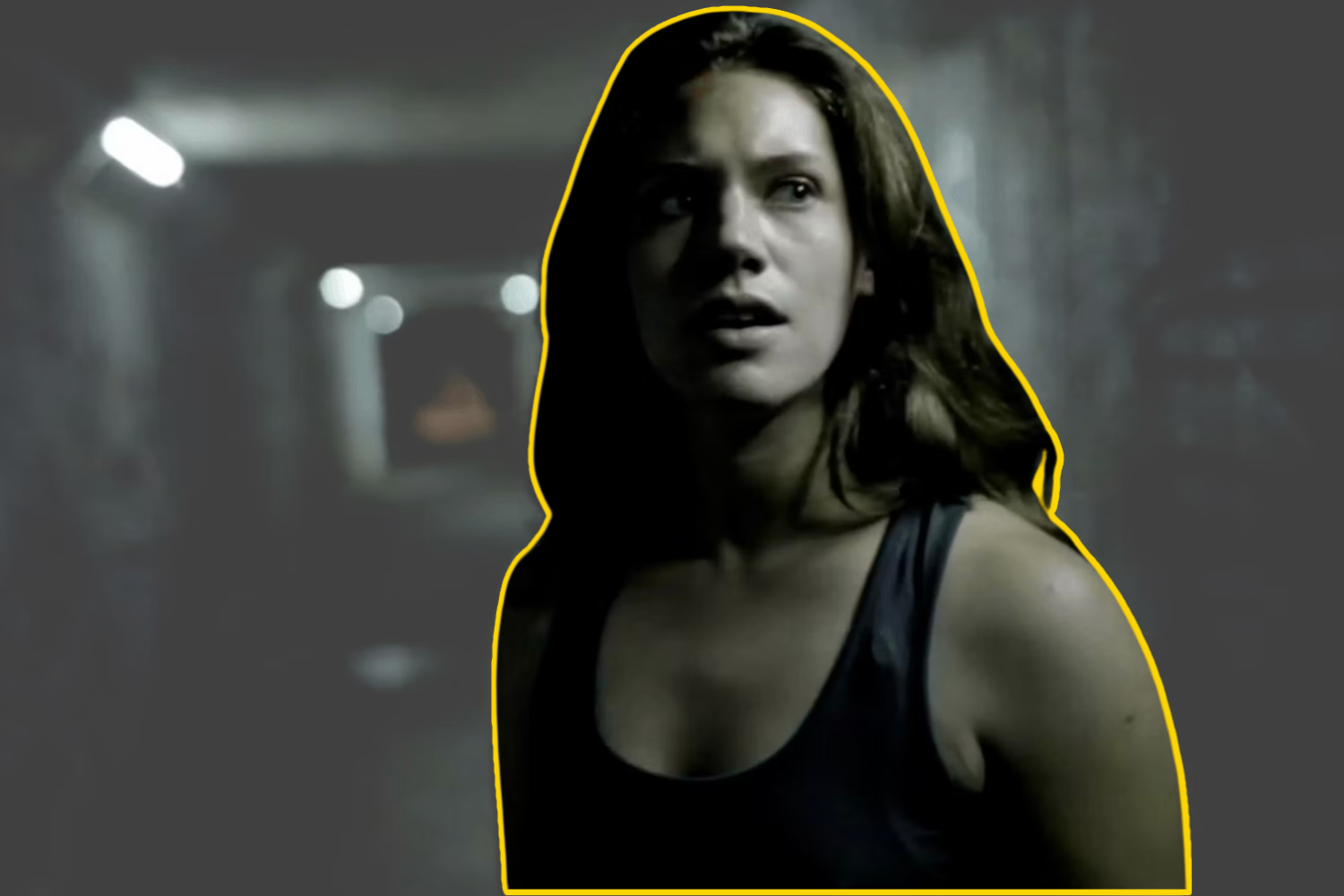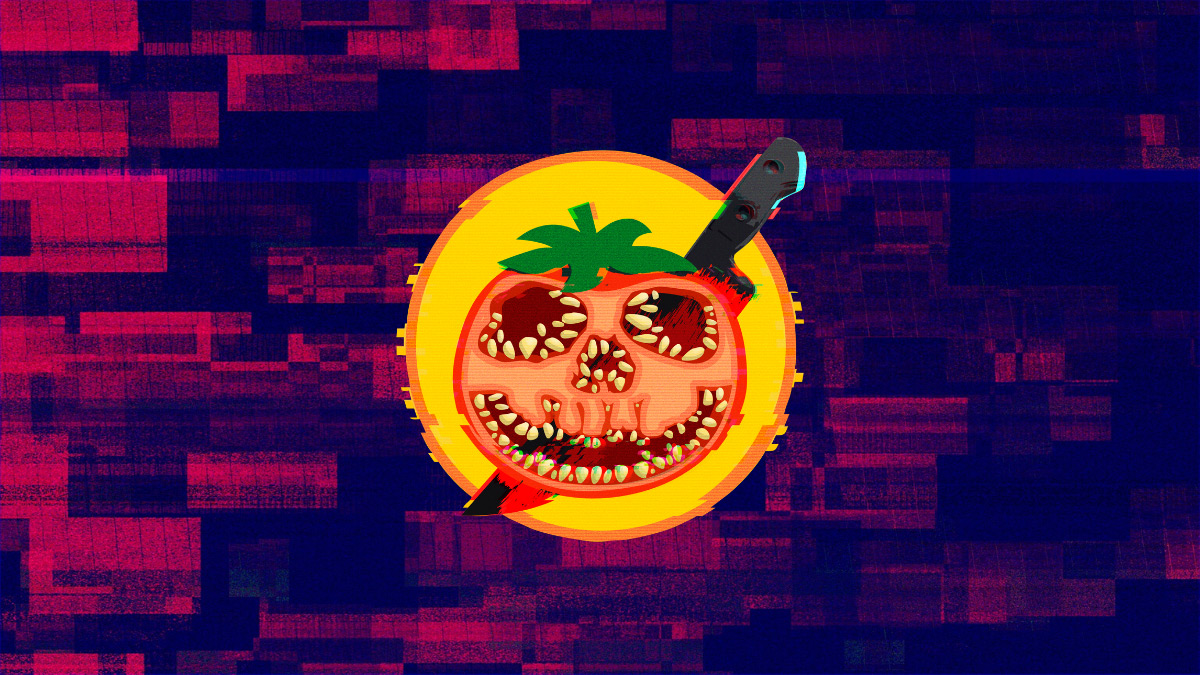Featured
How ‘Absentia’ Foreshadowed Mike Flanagan’s Horror Legacy
December 18th, 2023 | By Elizabeth Bishop

In October 2023, Netflix released The Fall of the House of Usher, marking a new entry into the ‘Flanaverse’ – a series of successful originals directed by Mike Flanagan. 13 years prior, before becoming one of the streaming service’s hottest assets, Flanagan wrote, directed, produced, and edited his first feature-length film Absentia. Made for just $70,000 raised by a Kickstarter fundraiser and shot almost entirely in his own apartment, this small-budget horror showcased all the talent and ideas that he would use to go on and forge his legacy.
Become a Free Member on Patreon to Receive Our Weekly Newsletter
Absentia follows the story of Tricia (Courtney Bell), a pregnant woman who is finally ready to take the steps to declare her husband, Danny, dead by absentia. Danny has been missing for seven long years with no contact, and throughout the film, Tricia speculates that he may have left her for another woman – or perhaps he was in an accident and suffered amnesia. In a heartbreaking moment, she wonders if “maybe he thinks of me sometimes but doesn’t know why.”
Callie (Katie Parker), Tricia’s younger sister, is by her side to help her through the official declaration. Callie is a former drug addict who has turned to religion to help with her sobriety. As Tricia tries to look forward to the arrival of her child and accept Danny is not coming back, Callie tries to help ease her guilt. She gifts her a copy of The Three Billy Goats Gruff for the baby. The fairytale is about three goats attempting to cross a bridge that is guarded by an evil troll.
Absentia explores what it is like to be haunted by grief and unanswered questions. It is a slow, quiet horror without big-bang jump scares and over-the-top set pieces. Flanagan used his small budget and single location setting to make you feel for what Tricia is going through – the mysterious loss of her husband and the guilt of possibly moving on.
The themes of grief, guilt, and addiction would go on to be a staple in Flanagan’s work. His understanding of the complexities surrounding addiction, including the pain it can cause to those around you, is never clearer than in the show that catapulted him into the spotlight and proved he was a Director to watch out for – The Haunting of Hill House.
Based on the 1959 novel of the same name, The Haunting of Hill House follows the lives of Olivia and Hugh Crain (Carla Gugino and Henry Thomas) and their five children across two timelines. In their childhood, the Crain siblings are moved into their new home – Hill House – where they must navigate the long winding corridors, secret rooms, and ghostly specters that enter their rooms at night. In adulthood, they are trying to navigate through the trauma caused by the unanswered questions surrounding what happened in that same house to cause the sudden death of their mother.
Throughout Absentia, the only space we see outside of Tricia’s home is the tunnel across the street. The deep dark void of that empty tunnel is an urban space that mirrors how grief can overwhelm and leave us with no hope. In Hill House, although we do see other locations, the house is its own entity and character within the story. Olivia Crain describes it to her children as like a person’s body: “The walls are like bones, the pipes are veins, it needs to breathe, it needs light and flow, and it all works together to keep us safe and healthy inside.”
One of the youngest members of the family, Luke (Oliver-Jackson Cohen), is battling a heroin addiction which is an implied result of the tragedy in his childhood. We see him trying repeatedly to get clean, suffering from all the symptoms of a come-down – shaking, sweating, vomiting, etc.
Using the two timelines format, we see the same events over and over but from different perspectives, allowing us to understand how the other characters are dealing with their own mental health as well as Luke’s struggles. Much like in Absentia with Tricia and Callie, we see the siblings wrestle with the fear that they could lose their brother, the disappointment when he relapses, the hurt when he lies and steals to fund his addiction, and the guilt of having to accept that only he can truly help himself.
Throughout the series, several hidden ghosts can be spotted in the background of each scene inside Hill House. This is Flanagan’s incredibly effective way of showing that, even though there are supernatural forces at present, what tears this family apart are secrets, lies, and guilt.
One year after the release of The Haunting of Hill House, Mike Flanagan took on another book-to-screen adaptation, releasing his take on Stephen King’s Doctor Sleep. The sequel to The Shining follows a now-adult Dan Torrence who is trying to recover from alcohol addiction after turning to drinking to suppress his supernatural abilities.
In a personal Tumblr post on the making of Doctor Sleep, Flanagan talked about his own journey with sobriety, admitting that it forced him to look at his relationship with alcohol: “Something was changing in me when it came to drinking. Something was waking up, and I was processing a desperate need to sober up.” Flanagan noted that he had been writing about addiction for a decade, all the way back to Absentia, without realizing just how much he was writing about himself.
During that decade, Flanagan had also been working on what he would go on to call his most personal piece so far – Midnight Mass. Exploring his own relationships with religion and alcoholism, Midnight Mass follows the story of Riley Flynn (Zach Gilford), who returns to his hometown of Crockett Island after spending time in prison for a drunk driving incident that resulted in the death of a woman. Like Callie in Absentia, Riley turns to religion to help him recover from his addiction in the form of the island’s new priest – a man with a dark secret that seems to be able to heal his loyal followers of their ailments.
As with Absentia and Hill House, location plays a big part in how the story plays out in Midnight Mass – however, unlike the tunnel across the street and Hill House, Crockett Island transforms throughout the series. What starts as the perfect remote escape for Riley and others from the harsh world outside soon becomes a prison when the world catches up to them.
Flanagan has been open about his experience growing up as a devout catholic and his choice to leave the church. Midnight Mass takes a magnifying glass to religion from all sides of the coin – from the casuals who attend church as a form of comfort and community to the puritanical extremist who is intent on every member of the community adhering to the rules of the church. It’s clear that even though Flanagan left the church, he does not believe religion is as simple as black and white, right and wrong.
Throughout his work, there is one question that Flanagan poses to the audience time and time again: What happens when we die? His work explores not just what happens to the ‘us’ that dies but, in Absentia, the people left behind and how they deal with the desperate guilt of wanting to move on. In The Haunting of Hill House, the notion of life after death and eternal peace is the trigger to the series’ greatest tragedy and the events that follow. Finally, in Midnight Mass, Flanagan offers a potential answer to the question. In a powerful monologue delivered by Kate Siegel, life and death are not described as two separate things but as part of a never-ending cycle in which we all enjoy a brief moment of cognizance. “There is no time. There is no death. Life is a dream. It’s a wish – made again, and again, and again, and again, again, and again, and on into eternity.”
12 years after the release of Absentia, fans of Mike Flanagan have come to expect projects that showcase the most complicated realities of being human in bone-chilling horror and gut-wrenching emotion – there is nothing too complex for the King of Heartbreak Horror. It may seem morbid to consider, but I hope that when he next ponders what will happen when he dies, he knows that he will be leaving an incredible legacy, and the world will be a much darker place without his beautiful, intricate writing.

